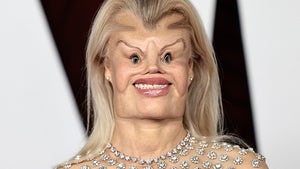Librarian Says 'Da Vinci Code' Lawsuit Lacks Merit
A retired librarian who helped novelist Dan Brown conduct research for the mega-selling thriller "The Da Vinci Code" said a lawsuit accusing Brown of stealing ideas from other writers is bogus.
Stan Planton, 58, a retired head librarian at Ohio University-Chillicothe, said that he's puzzled by the court case, which began this week in London.
In an interview with The Associated Press, he downplayed his role with the book, saying he exchanged e-mails with Brown before publication of "The Da Vinci Code," helping Brown locate information on the lineage of French kings and other minor details.
"I was just being a librarian, helping someone find what they needed," said Planton, who retired last year. He said he has not been contacted by attorneys involved in the lawsuit.
Michael Baigent and Richard Leigh, two of the authors of the 1982 nonfiction book "The Holy Blood and the Holy Grail," are suing Random House. They claim that parts of their work formed the basis of Brown's 2003 novel, which has sold more than 40 million copies and has been made into a film starring Tom Hanks, which is scheduled to open May 19.
The book's third author, Henry Lincoln, is not participating in the case.
Baigent and Leigh say that Brown "appropriated the architecture" of their book, which explores theories that Jesus married Mary Magdalene, that the couple had a child and that the bloodline survives.
Random House, which also published "The Holy Blood and the Holy Grail," denies the claim.
An attorney for the authors told the court that Brown's wife, Blythe Brown, and Planton scoured religious and historical texts on Brown's behalf as he wrote his novel, typing up notes and in some instances, copying parts of the 1982 book.
Planton said he doesn't know anything about that.
"His wife was doing much of the research," said Planton, who said he didn't save any of his e-mails. "They work in a very symbiotic relationship."
Planton said he knew that "The Holy Blood and the Holy Grail" existed but never read it.
"The irony of the whole lawsuit is that Dan Brown has made those authors rich because publicity around 'The Da Vinci Code' turned their book into a best seller after being on the back shelf of libraries and bookstores for years," Planton said.
Planton said he met Brown in 1998 through a mutual friend who was trying to help Brown answer questions about code-breaking and technical military scientific trivia.
The inscription in Planton's copy of "The Da Vinci Code" reads: "Stan -- Without you, this book would have been a lot shorter. Thanks for all the info. Dan"
The case resumes next Tuesday so that the judge, Peter Smith, will have time to read both books and related texts.




